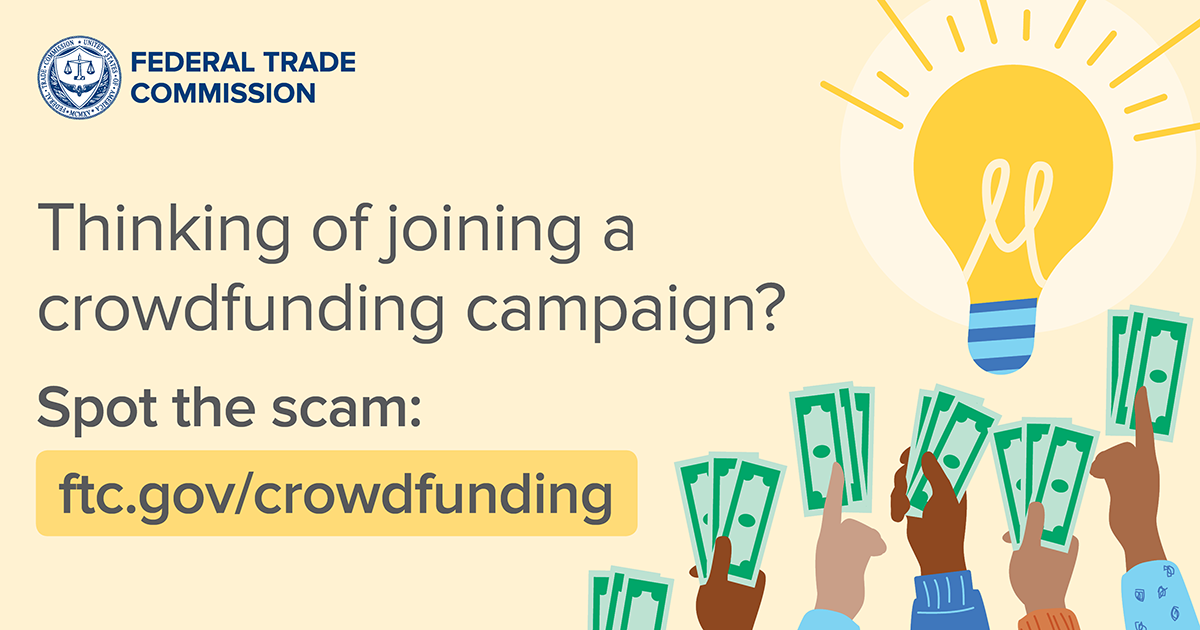
If it takes a village to raise a child, crowdfunding may be what it takes to make that invention a reality. But scammers could be behind those crowdfunding efforts and take your money without delivering what they promise.
Crowdfunding can help raise money to develop a new product or invention. To get investors, the organizer may promise something in exchange for contributions. Investors might get a payout once the invention is profitable, be the first to get the new product, or get the new product at a discount later on.
When you give money to a crowdfunding campaign, it goes directly to the campaign organizer. But a dishonest businessperson might lie about the project, product, and timeline. And they might lie about the rewards you’ll get once the product is finished.
So before you pledge funds to any crowdfunding campaign, check on a few things first:
- Who created the campaign? Find the name of the organizer on the crowdfunding page and do your own vetting. If you can’t find anything about that person, or the details don’t match what they’re telling you, that’s a sign of a scam. Search for the name of the organizer and project with the words “complaint,” “review,” or “scam” to see if anyone has already had a negative experience.
- What’s the purpose of the campaign? Be clear what the funds are for and what you should expect from your contribution. Not all campaigns promise you’ll get anything in return.
- What happens if the project doesn’t get off the ground? There’s no guarantee that the project will be successful and completed. Find out what happens to your money if the project doesn’t get going. Can you expect a refund? How you will get it?
If you come across a crowdfunding scam, report it to ReportFraud.ftc.gov, your state Attorney General, and the crowdfunding platform.
